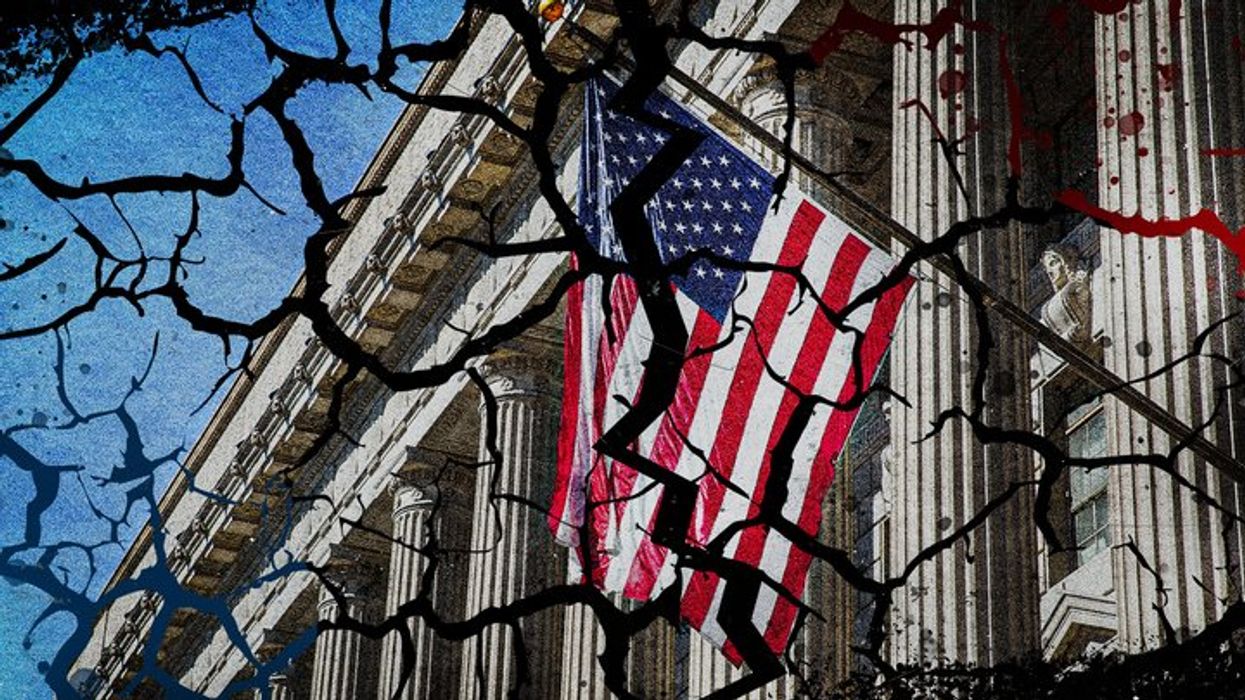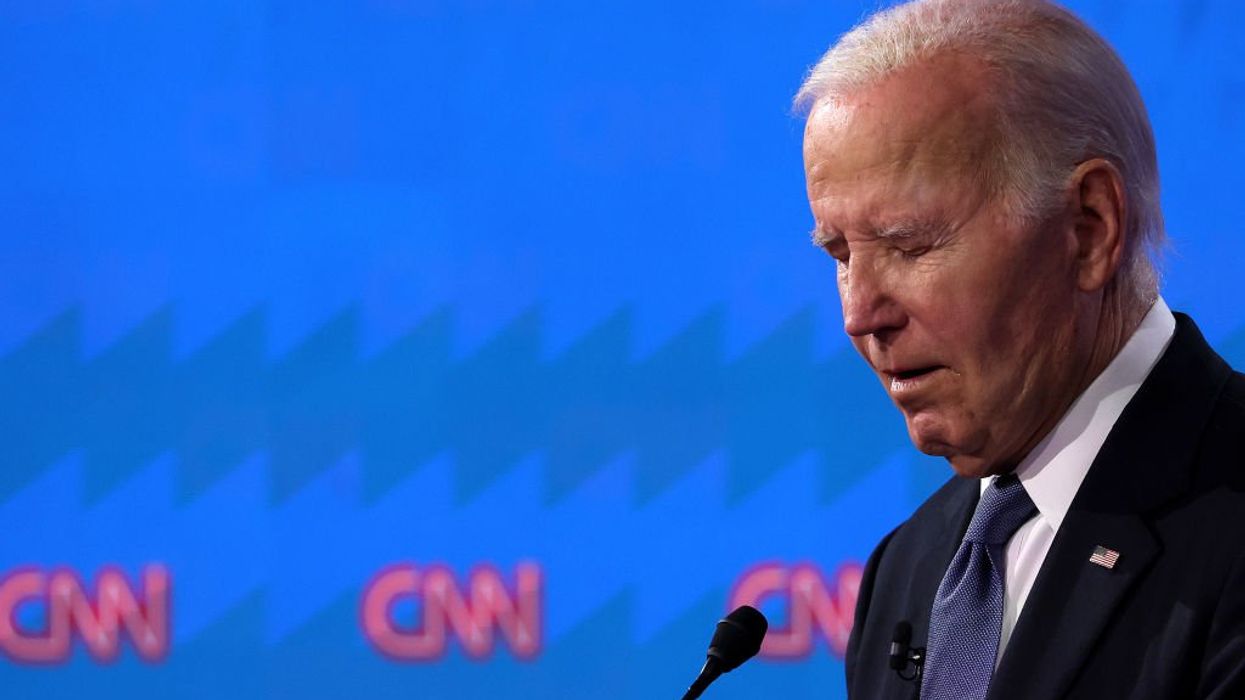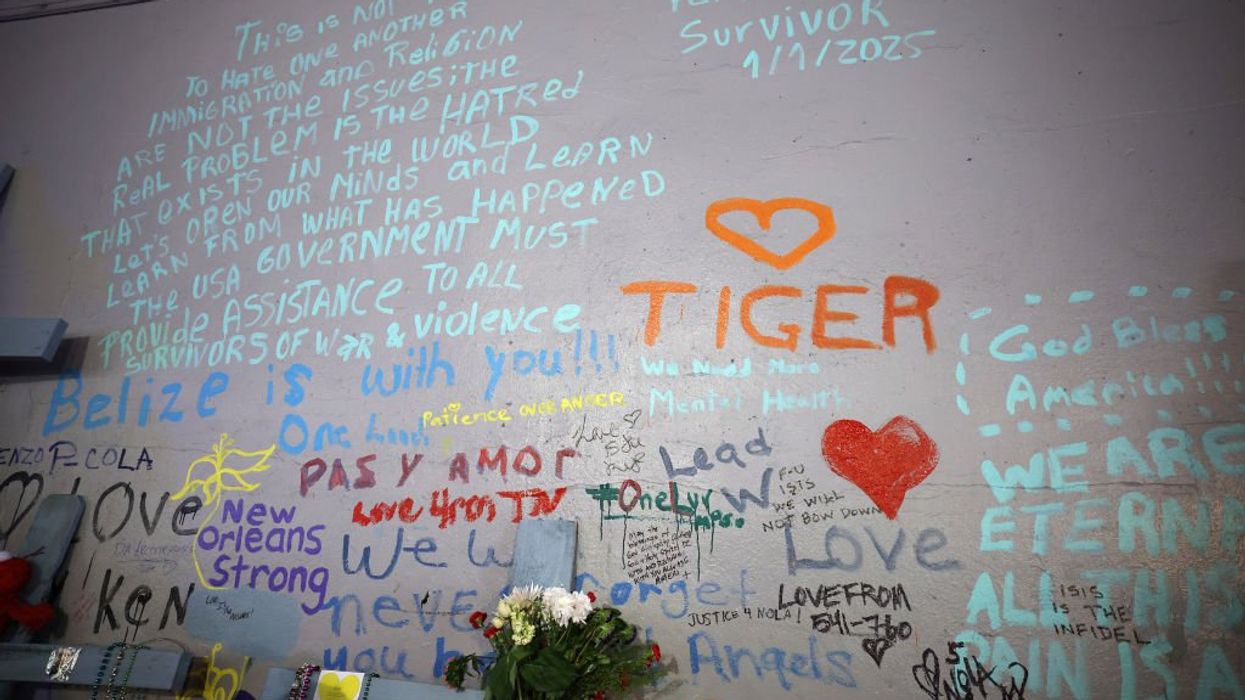
© 2025 Blaze Media LLC. All rights reserved.
Always and everywhere, power seeks to expand its reach and centralize control. In order to consolidate control, the state must erode the influence of all competing power centers and leave itself as the only authority on which its subjects can rely. Dependence is the foundation of sovereignty, and any state that seeks to gain total control over its population must make the population completely dependent by removing any form of stability provided by an alternative social institution that could allow the subject to ignore the will of the government.
The naked destruction of these competing centers of power by the state will be correctly identified as tyranny, so any government undertaking that task must have a justifying narrative to obfuscate the fact that it is seizing authority from its rivals. The revolution has proven to be the most powerful justifying narrative of the modern era, allowing one power center to destroy its rivals in the name of the people. If a state seeks total control of its population, the creation of a permanent revolution provides a never-ending justification for the expansion and centralization of authority.
In the early stages of development, nations tend to see a wider distribution of political power. When governments are young, they do not have the authority, wealth, or bureaucratic structure necessary to wield control over every part of their domains. New governments tend to be very dependent on regional authorities and organic social institutions because they could not hope to replace the function of those centers of power. Community members are dependent on their families, local churches, and civic organizations for their material and spiritual needs.
Capable leaders form a natural aristocracy, be it in the classic sense of landed nobles or the more modern figures of the mayor, sheriff, and county commissioner. The local populations count on these regional institutions and leaders, not the central state, for their direct safety and security. This dependence generates power for these local aristocrats and institutions, and the fact that the younger central government must rely on them also means its own power is limited.
It is not a constitution or a bill or rights that restricts the power or growth of government. It is the existence of competing centers of power and political interests that holds a central government in check. When the government relies on other social authorities to keep the nation functioning, it is required to negotiate with those competing centers of power. Because those competing power centers are local or regional, their political interests are far more likely to be tied to the particular needs of their communities. This means that as long as those competing power centers hold significant sway, the central government will always face natural limitations on its power, because it cannot ignore the competing regional interests of its constituent communities.
If a state seeks to expand and centralize control, it must eliminate or capture the power wielded by the other political forces inside the nation. The authority of competing spheres of power must be collapsed so that they are no longer forcing compromise and their concerns can be ignored. This is easier said than done, as those competing regional powers have earned the loyalty of the communities that have long depended on them. That loyalty grants the regional powers independence, something that is unacceptable to a state seeking total control. If the state is to remove these rival power centers, then the loyal base that grants them independence must be undermined.
In his book "On Power," the political theorist Bertrand De Jouvenel explains that the most effective way to undermine established regional powers that are competing for authority with the state is to offer their wealth and power to the disenfranchised. Communities that have benefited from their long-standing relationship to regional leaders and institutions are unlikely to abandon them and pledge their allegiance to the central government, but newly arrived communities or those that have traditionally been denied the benefits of those competing spheres of power have no such loyalty.
Emperors and kings who wished to increase their power while reducing the influence of the nobility would often use new populations acquired through conquest or disenfranchised social groups inside their realm to dislodge their rivels. The titles may have changed in the modern world, but the dynamics of power have not. This Jouvenelian model of high/low vs. middle continues today in the eternal revolution of the total state.
The eternal revolution in explicitly communist countries is very easy to observe. Revolutionaries use the disenfranchised masses to wipe out all traditional governing institutions and redistribute some of the spoils seized from the ruling class while taking the corresponding authority for themselves. Neither the power nor the material wealth is enough, so revolutionaries target the kulaks, those who were capable of assembling some level or personal wealth and independence under the old system.
Whipping out the kulaks is never sufficient, because the power of the ruling party was built on their ability to punish a public enemy, and new ones must be regularly presented if their narrative justification for control is to be maintained. Even if the communist party has been in total control for decades, the state must continue to find new anti-revolutionary forces to punish in the name of the people.
With the fall of the Soviet Union, Western nations believed that they had escaped the ravenous hunger of the eternal revolution and emerged victorious, but instead the centralization of power simply took on a different form. Instead of forming a revolution around the collective nation, the governments of Western nations built their justifying narrative around individual liberation.
Civil rights and human rights became the new civic religion of Western nations, and the pursuit of these rights could justify any expansion in government authority. The autonomy of states and local governments could be abolished in the name of the civil rights revolution, as could the property rights of both businesses and individuals. Confiscatory tax rates could be justified by redistributive practices and the need to deliver standardized government services in the areas of education, child care, and housing in order to level the playing field. Open borders ensured a steady flow of new arrivals who would always be, by definition, less enfranchised and would require the regular intervention of an ever-expanding state in order to level the playing field.
American revolutionaries used these policies to target their own kulaks, the middle class who were the backbone of regional autonomy and independence. The middle class and the institutions they had built served as an alternative power center that enable local communities to flourish without dependence on the central state, and the middle must always be destroyed by the revolution in the name of the people.
With individual liberty as its justifying narrative, the eternal revolution in Western nations had to find increasingly obscure minorities in whose name it could demand additional power. One of the reasons our media and government seem so bent on manufacturing as many transgenderists as possible is the incredible amount of revolutionary energy they generate. If the very truth of biology itself must be altered in the quest for individual liberation, the state will need virtually unlimited power to engineer a society in which this wholly artificially constructed identity can exist and thrive. The justifying narrative may be collective or individualistic, but the dynamic of high/low vs. middle remains the same.
“Where will it end? In the destruction of all other command for the benefit of one alone — that of the state. In each man’s absolute freedom from every family and social authority, a freedom the price of which is complete submission to the state. In the complete equality as between themselves of all citizens, paid for by their equal abasement before the power of their absolute master — the state. In the disappearance of every constraint which does not emanate from the state, and in the denial of every pre-eminence which is not approved by the state. In a word, it ends in the atomization of society, and in the rupture of every private tie linking man and man, whose only bond is now their common bondage to the state. The extremes of individualism and socialism meet: that was their predestined course.” (Bertrand De Jouvenel, "On Power," p. 187.)
The state in America has already destroyed the majority of its competing power centers. Regional governments have lost most of the independence granted by the Constitution, and while some brave governors, mayors, and sheriffs continue to resist the dictates of the central government, their actions are the exception, not the rule. The church, once a powerful bulwark against state power, has lost much of its cultural influence, and many denominations have now shamefully devoted themselves to worshipping the new gods of the total state. Each of these competing power centers has been eroded in the name of individual liberty, and as each one has fallen, the authority of the state has grown.
The family is always the final barrier to the total state. It is the most organic bond of dependence human beings form and one of the few remaining institutions exercising authority beyond the reach of the government. This is why every totalitarian government seeks to turn the child against his parents. If it can break that most fundamental of all bonds, then there are truly no limits to the state’s power.
The family stands battered, the institution has been redefined and undermined in almost every conceivable way, all in the name of individual rights for the disenfranchised. The revolution has now taken aim at the children themselves, pushing artificial sexual identities onto them at an increasingly younger age and promising to liberate them from the authority of parents who would deny that identity. Of course, no child is ever liberated by this process. They are only taken from the protective authority of their parents and made complete wards of a state that seeks to use them in its never-ending quest for power.
The good news is that many are starting to understand that the relentless quest for individual liberation has failed us and that bonds of community, not unfettered liberty, are what protect us from a totalitarian state. In order to break the cycle of revolution and the growth of the state that accompanies it, we must once again bind ourselves together in institutions capable of providing what the state cannot. Community, meaning, purpose, and a culture that nourishes the spirit can only come from the organic bonds formed by those who share folkways and traditions, who become dependent on each other instead of the state. It is these bonds, and these bonds alone, that can resist the modern state and its eternal revolution.Want to leave a tip?
We answer to you. Help keep our content free of advertisers and big tech censorship by leaving a tip today.
Want to join the conversation?
Already a subscriber?
BlazeTV Host
Auron MacIntyre is the host of “The Auron MacIntyre Show” and a columnist for Blaze News.
AuronMacintyre
Auron MacIntyre
BlazeTV Host
Auron MacIntyre is the host of “The Auron MacIntyre Show” and a columnist for Blaze News.
@AuronMacintyre →more stories
© 2025 Blaze Media LLC. All rights reserved.
Get the stories that matter most delivered directly to your inbox.
By signing up, you agree to our Privacy Policy and Terms of Use, and agree to receive content that may sometimes include advertisements. You may opt out at any time.



